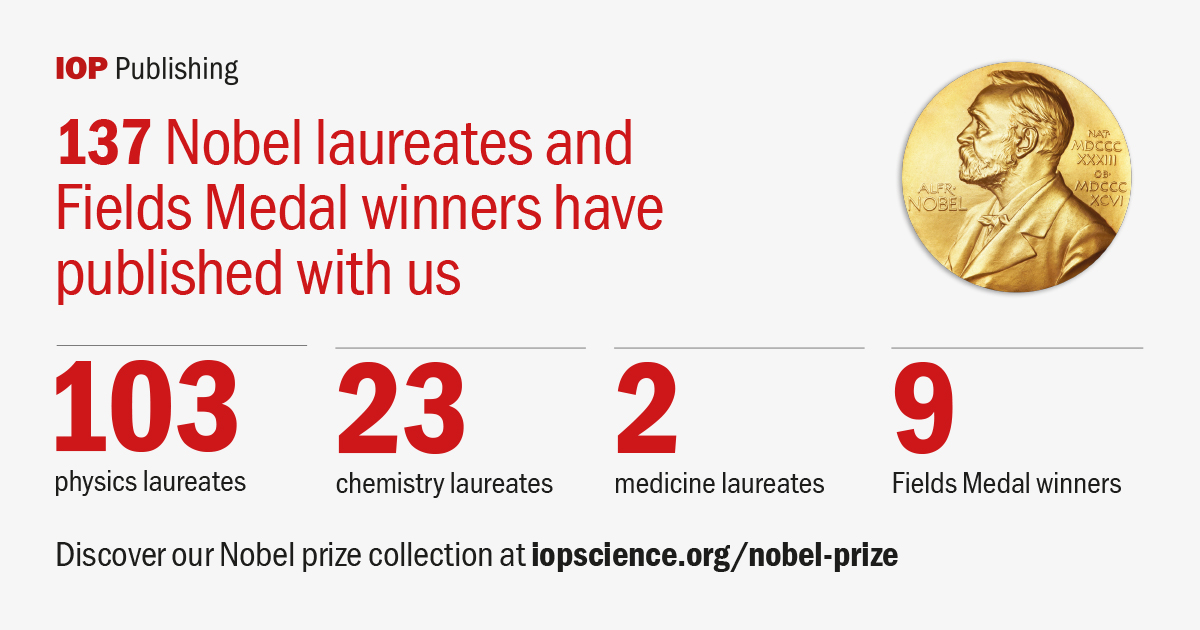Nobel Prize in Physics awarded to IOP Fellow and team for work in quantum technology
07 Oct 2025 by Faye Holst Nobel Prize in Physics awarded to IOP Fellow and team for work in quantum technology
Nobel Prize in Physics awarded to IOP Fellow and team for work in quantum technology
The Institute of Physics (IOP) and IOP Publishing extend their warmest congratulations to IOP Fellow John Clarke FInstP FRS, and his colleagues Michel Devoret and John Martinis, on winning the 2025 Nobel Prize in Physics for their work in the development of quantum science – especially meaningful in this, the UNESCO International Year of Quantum Science and Technology.
The trio, who conducted the majority of their work together in the United States in the 1980s, have been recognised for showing how quantum particles can tunnel through matter, a process that has paved the way for superconducting quantum technology that forms the basis of many of today’s most advanced applications, including quantum computers.
Professor Clarke said of winning the prize “to put it mildly, this is the surprise of my life,” adding: “It didn’t occur to me in any way this work would lead to a Nobel prize.” He explained how their work led to developments such as the cell phone and paid respects to forerunners in quantum development whose work made possible the research and discovery his team has undertaken.
Tom Grinyer, CEO of the Institute of Physics, said: “It is wonderful in the International Year of Quantum to see this area of physics being recognised. The Institute of Physics is doubly proud to see one of our own celebrated by the Nobel committee and our congratulations extend to Michel Devoret and John Martinis for their important and remarkable work.”
Sir Peter Knight FRS HonFInstP, a past President of the Institute of Physics and a leading figure in the UK quantum landscape, said: “We congratulate IOP Fellow and FRS John Clarke, along with Michel Devoret and John Martinis, on being awarded the Nobel Prize in Physics. Their remarkable experiments – revealing macroscopic quantum tunnelling and the quantisation of energy in circuits – have pushed the frontier of what’s possible in quantum science.
“In this International Year of Quantum Science, their recognition is especially timely. Their work has not only deepened our understanding of the quantum world but also laid the critical foundations for the future of quantum technologies – from computing and sensing to secure communication.”
Antonia Seymour, CEO of IOPP, said: “The Nobel Prize in Physics and Chemistry are always a moment to celebrate the achievements of the global physics and chemistry communities. We commend the laureates for their remarkable contributions to the field and are proud to have published some of their research, which reflects the depth and impact of their work.”
IOP Publishing is proud to have published the following papers by this year’s Nobel Prize winners in Physics.
- Effect of Dissipation on Macroscopic Quantum Tunneling
- Effect of an Adjustable Admittance on the Macroscopic Energy Levels of a Current Biased Josephson Junction
- Observation of the a.c. Josephson Effect Inside Copper-Oxide-Based Superconductors
- General phase spaces: from discrete variables to rotor and continuum limits
- Dynamically protected cat-qubits: a new paradigm for universal quantum computation
- Pair-cat codes: autonomous error-correction with low-order nonlinearity
137 Nobel laureates and field medallists have published their work with IOP Publishing. Check out their work in our dedicated Nobel Prize Collection.
For more updates and background on this year’s winners, check our stories on Physics World.
